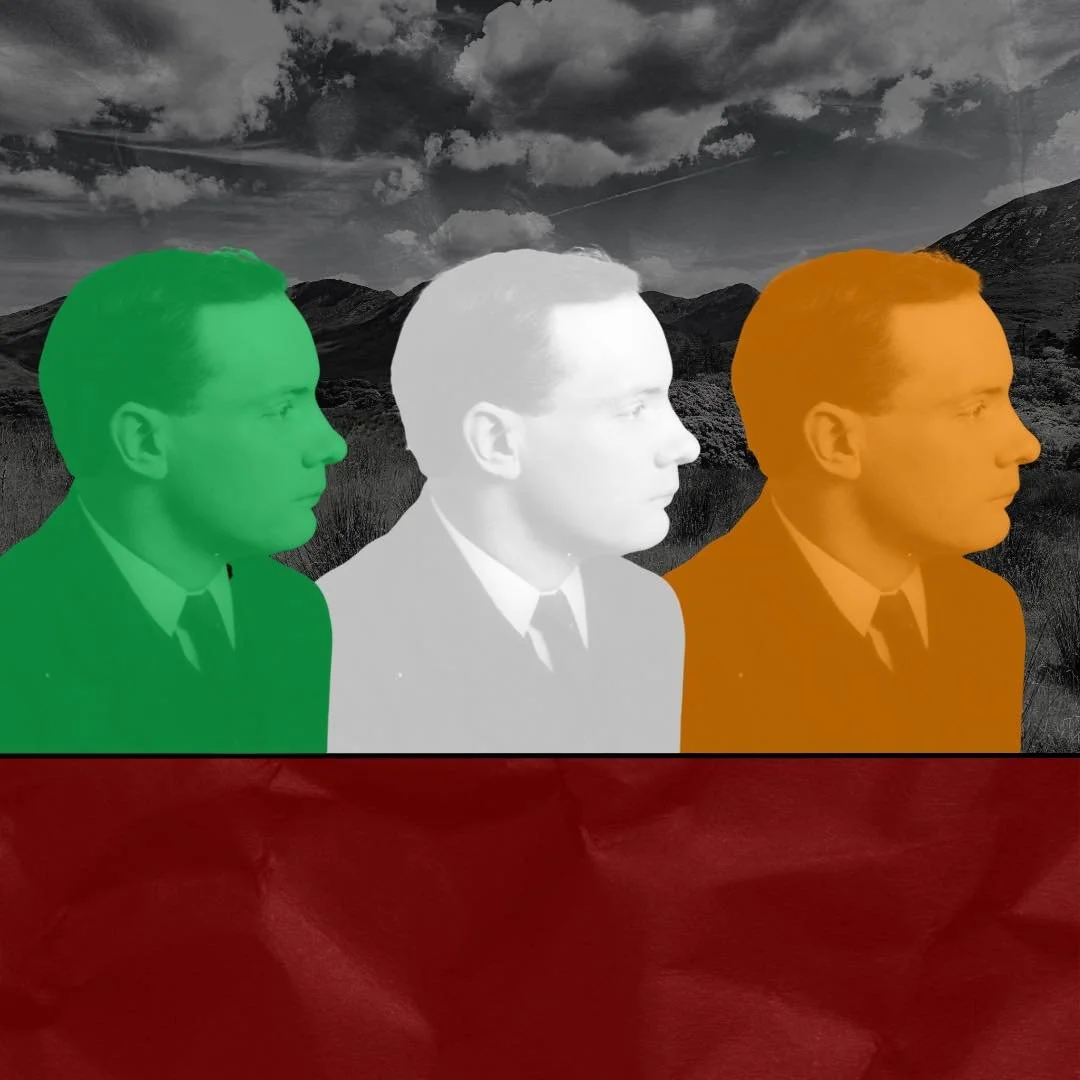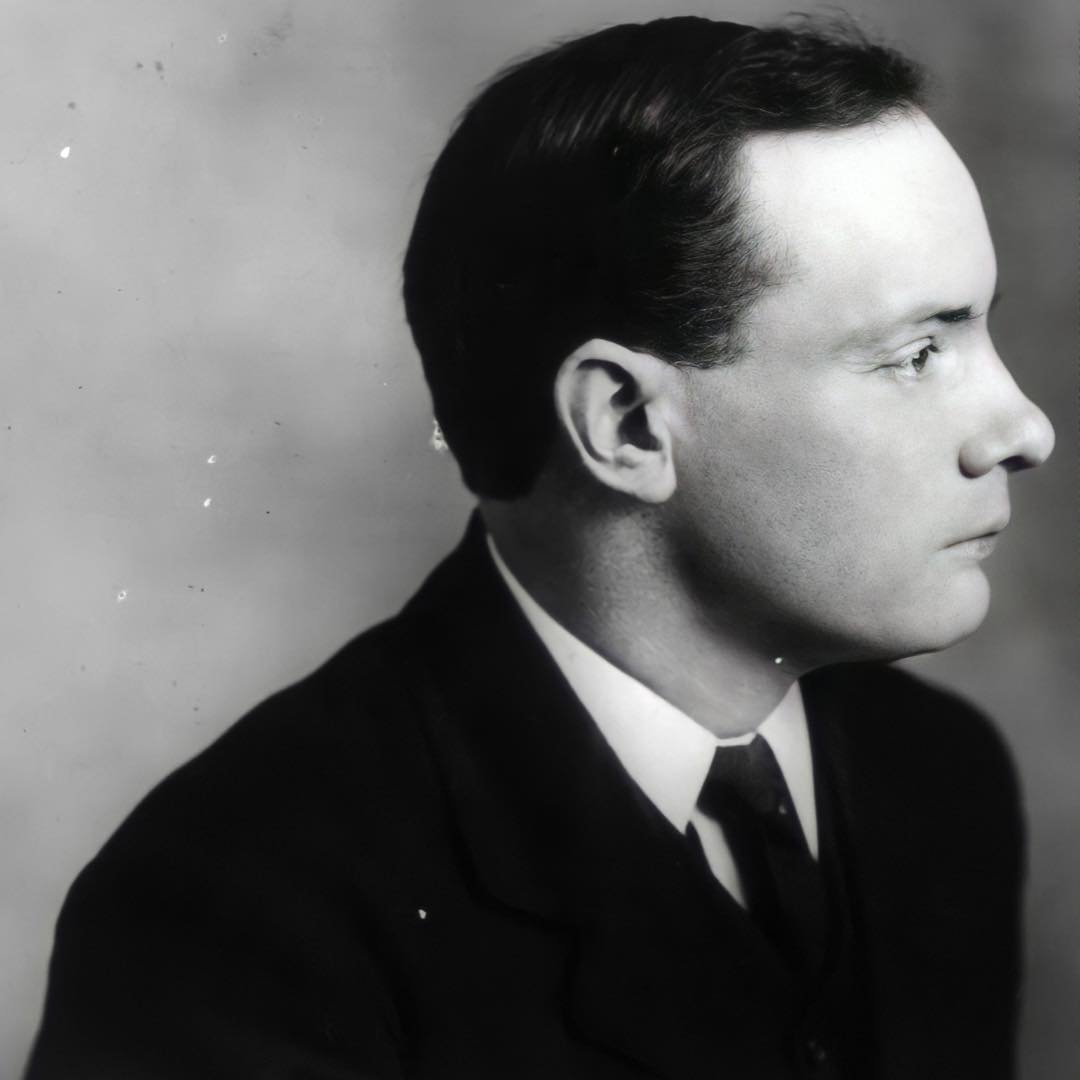Pádraig Pearse - 'Ghosts' (Part Three)
(Ten minute read)
Today we publish the third part of ‘Ghosts’, an essay written by Pádraig Pearse in December 1915. ‘Ghosts’ is the first of a collection of four essays that Pearse wrote during the last six months of his life. The other three being, The Separatist Idea, The Spiritual Nation and The Sovereign People.
In the extract below, Pearse explains why he chose the ‘four master minds’ of the separatist tradition, Theobald Wolfe Tone, Thomas Davis, James Fintan Lalor and John Mitchell, and why he left out others.
Pádraig Pearse in 1916.
The chain of the Separatist tradition has never once snapped during the centuries. Veterans of Kinsale were in the ’41; veterans of Benburb followed Sarsfield. The poets kept the fires of the nation burning from Limerick to Dungannon. Napper Tandy of the Volunteers was Napper Tandy of the United Irishmen. The Russell of 1803 was the Russell of 1798. The Robert Holmes of ’98 and 1803 lived to be a Young Irelander. Three Young Irelanders were the founders of Fenianism. The veterans of Fenianism stand to-day with the Irish Volunteers. So the end of the Separatist tradition is not yet.
It would be very instructive to examine in its breadth and depth, in its connotations as well as in its denotations, the Irish definition of freedom; and I propose to do this in a sequel to the present essay.
For my immediate purpose it is sufficient to state that definition merely as a principle involving essentially the idea of Independence, Separation, a distinct and unfettered national existence.
The conception of an Irish nation has been developed in modern times chiefly by four great minds. On a little reflection one comes to see that what has been contributed by other minds has been almost entirely by way of explanation and illustration of what has been laid down by the four master minds; that the four have been the Fathers, and that the others are just their commentarists.
Accordingly, when I have named the four names, there will be hardly any need to name any other names. Indeed, it will be difficult to think of names that can be named in the same breath with these, difficult to think of men who have reached anything like the same stature or who have stretched out even half as far.
The names are those of Theobald Wolfe Tone, Thomas Davis, James Fintan Lalor, and John Mitchell.
It is a question here of political teachers, not of mere political leaders. O’Connell was a more effective political leader than either Lalor or Mitchel, but no one gives O’Connell a place in the history of political thought. He did not propound, he did not even attempt to propound, any body of political truths. He was a political strategist of extraordinary ability, a rhetorician of almost superhuman power. But we owe no political doctrine to O’Connell except the obviously untrue doctrine that liberty is too dearly purchased at the price of a single drop of blood.
The political position of O’Connell – his falling back on the treaty of 1782-3 – was not the statement of any national principle, the embodiment of any political truth – it was an able, though as it happened unsuccessful, strategical move.
Parnell must be considered. If one had to add a fifth to the four I have named, the fifth would inevitably be Parnell. Now Parnell was less a political thinker than an embodied conviction; a flame that seared, a sword that stabbed. He deliberately disclaimed political theories, deliberately confined himself to political action. He did the thing that lay nearest to his hand, struck at the English with such weapons as were available.
His instinct was a Separatist instinct; and, far from being prepared to accept Home Rule as a ‘final settlement between the two nations,’ he was always careful to make it clear that, whether Home Rule came or did not come, the way must be left open for the achievement of the greater thing. In 1885 he said:
It is given to none of us to forecast the future, and just as it is impossible for us to say in what way or by what means the national question may be settled – in what way full justice may be done to Ireland – so it is impossible for us to say to what extent that justice should be done.
We cannot ask for less than the restitution of Grattan’s Parliament, with its important privileges and wide and far-reaching constitution. We cannot, under the British constitution, ask for more than the restitution of Grattan’s Parliament, but no man has a right to fix the boundary of the march of a nation. No man has a right to say ‘Thus far shalt thou go, and no further’; and we have never attempted to fix the ne plus ultra to the progress of Ireland’s nationhood, and we never shall.
But, gentlemen, while we leave these things to time, circumstances, and the future, we must each one of us resolve in our own hearts that we shall at all times do everything that within us lies to obtain for Ireland the fullest measure of her rights.
In this way we shall avoid difficulties and contentions amongst each other. In this way we shall not give up anything which the future may put in favour of our country; and while we struggle to-day for that which may seem possible for us without combination, we must struggle for it with the proud consciousness that we shall not do anything to hinder or prevent better men who may come after us from gaining better things than those for which we now contend.
And again, in the same year:
Ireland a nation! Ireland has been a nation: she is a nation; and she shall be a nation… England will respect you in proportion as you and we respect ourselves. They will not give anything to Ireland out of justice or righteousness. They will concede you your liberties and your rights when they must and no sooner. . .
We can none of us do more than strive for that which may seem attainable to-day; but we ought at the same time to recollect that we should not impede or hamper the march of our nation; and although our programme may be limited and small, it should be such a one as shall not prevent hereafter the fullest realisation of the hopes of Ireland; and we shall, at least if we keep this principle in mind, have this consolation that, while we may have done something to enable Ireland in some measure to retain her position as a nation, to strengthen her position as a nation, we shall have done nothing to hinder others who may come after us from taking up the work with perhaps greater strength, ability, power, and advantages than we possess, and from pushing to that glorious and happy conclusion which is embodied in the words of the toast which I now ask you to drink – ‘Ireland a nation’!
These words justify me in summoning the pale and angry ghost of Parnell to stand beside the ghosts of Tone and Davis and Lalor and Mitchell. If words mean anything, these mean that to Parnell the final and inevitable and infinitely desirable goal of Ireland was Separation; and that those who thought it prudent and feasible, as he did, to proceed to Separation by Home Rule must above all things do nothing that might impair the Separatist position or render the future task of the Separatists more difficult.
Of Parnell it may be said with absolute truth that he never surrendered the national position. His successors have surrendered it. They have written on his monument in Dublin those noble words of his, that no man has a right to fix the boundary of the march of a nation; and then they have accepted the Home Rule Act as a ‘final settlement’ between Ireland and England. It is as if a man were to write on a monument ‘I believe in God and in Life Everlasting’ and then to sell his chance of Heaven to the Evil One for a purse, not of gold, but of I.O.U.’s.
If I could think of any other name that, with due regard for proportion, could be named with the great names, I should name it and proceed to examine its claims. But I can think of no other name. I can think of heroic leaders like Emmet; I can think of brilliant rhetoricians like Meagher; I can think of able and powerful publicists like Duffy; I can think of secret organisers like Stephens: and all these were Separatist. But I cannot think of anyone who has left behind him a body of teaching that requires to be examined.
Emmet’s mind was as great as any of the four minds except Tone’s, but we have not its fruits; only an indication of its riches in his speech from the dock, and of its strength and sanity in the draft proclamation for his Provisional Government.
I can think, again, of three great political thinkers of Anglo-Ireland before Tone: Berkeley, Swift, and Burke. And from the writings of these three I could construct the case for Irish Separatism. But this would be irrelevant to my purpose.
I am seeking to find, not those who have thought most wisely about Ireland, but those who have thought most authentically for Ireland, the voices that have come out of the Irish struggle itself. And those voices, subject to what I have said as to Parnell, are the voices of Tone, of Davis, of Lalor, of Mitchell.


